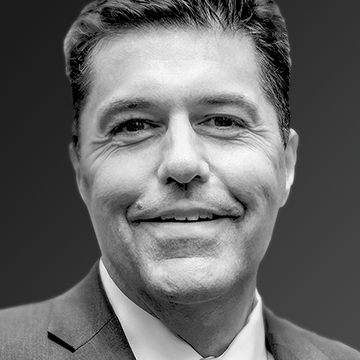Ancient Medicines + Digital Therapeutics: The Future Treatment of Major Depressive Disorders?
By Scott Reese
Psychedelics have been used for thousands of years by various cultures for their spiritual, medicinal, and cultural significance. However, in the mid-20th century, the use of psychedelics began to spread beyond traditional cultural contexts and into the mainstream. The modern history of psychedelic use is a complex story that involves both scientific research and cultural movements.
The 1950s and 60s saw a surge of interest in the therapeutic potential of psychedelics, particularly in the fields of psychiatry and psychotherapy. Researchers such as Timothy Leary and Richard Alpert, who later became known as Ram Dass, conducted studies on the effects of psychedelics such as LSD and psilocybin on mental health. These studies suggested that psychedelics could be effective in treating a range of psychiatric disorders, including depression and addiction.
However, the cultural impact of psychedelics during this time was just as significant. The counterculture movement of the 1960s, with its emphasis on free love, experimentation, and spiritual exploration, was closely associated with the use of psychedelics. Artists, musicians, and writers, such as Ken Kesey and the Grateful Dead, also played a significant role in spreading the use of psychedelics to a wider audience.
This era of widespread psychedelic use came to an end in the late 1960s and early 1970s. Increased government regulation and negative media attention contributed to a decline in the popularity of psychedelics. However, the scientific interest in their therapeutic potential continued.
In recent years, there has been a resurgence of interest in psychedelics among the scientific community. Clinical trials have shown promising results in the use of psychedelics to treat conditions such as depression, anxiety, and addiction. In 2019, the US Food and Drug Administration (FDA) granted breakthrough therapy designation to psilocybin for the treatment of depression.
In addition to scientific research, there has also been a resurgence of interest in the cultural and spiritual significance of psychedelics. The modern-day psychedelic movement, which includes groups such as the Multidisciplinary Association for Psychedelic Studies (MAPS) and the Psychedelic Society, is focused on promoting the responsible use of psychedelics for personal growth, spiritual exploration, and community building.
However, the current landscape of psychedelic use is not without its challenges. The legal status of many psychedelics remains a barrier to research and responsible use. There is also a risk of exploitation and commercialization as the popularity of psychedelics continues to grow.
Despite these challenges, the modern history of psychedelic use is a story of both scientific advancement and cultural evolution. With ongoing research and responsible use, psychedelics have the potential to continue to play an important role in enhancing human health and well-being.
The use of psychedelics, such as psilocybin and LSD, for treating depressive disorders is an area of growing interest in the mental health field. Studies have shown that these substances can have powerful and long-lasting effects on mood and cognition and may offer a new approach to treating depression that is not dependent on traditional antidepressant medication.
Psychedelics are thought to work by altering the way that neurotransmitters, such as serotonin, function in the brain. Specifically, they appear to increase the availability of serotonin in certain areas of the brain that are associated with mood regulation and emotional processing. This effect may help to reduce symptoms of depression by increasing feelings of well-being and decreasing negative thought patterns.
Several studies have investigated the use of psilocybin and other psychedelics in treating depression, with promising results. One study conducted at Johns Hopkins University found that a single dose of psilocybin significantly reduced symptoms of depression and anxiety in patients with life-threatening cancer. Another study conducted in the United Kingdom found that psilocybin reduced symptoms of depression in patients with treatment-resistant depression.
While the results of these studies are promising, it is important to note that the use of psychedelics for treating depression is still in the experimental phase and further research is needed to fully understand the risks and benefits of this approach. Psychedelic therapy is currently only available in a limited number of research settings and is not yet approved for clinical use.
The integration of psychedelics and digital therapies is an emerging area of healthcare that has the potential to revolutionize the treatment of mental health disorders. Psychedelics, such as psilocybin and MDMA, have been shown in clinical trials to be effective treatments for a range of mental health disorders, including depression, anxiety, and post-traumatic stress disorder (PTSD). Digital therapies, including virtual reality (VR) and mindfulness apps, have also been shown to be effective in treating these conditions. The integration of these two therapies has the potential to create more personalized, effective, and accessible treatments for mental health disorders.
One way that psychedelics and digital therapies can be integrated is by using virtual reality to enhance the psychedelic experience. Virtual reality can be used to create immersive and interactive environments that can help patients to better understand and integrate the insights and experiences they have during a psychedelic therapy session. For example, a patient undergoing a psychedelic therapy session for depression could use a VR headset to explore a virtual world that reflects their emotions and experiences.
Another way that psychedelics and digital therapies can be integrated is by using digital tools to support preparation and integration of the psychedelic experience. This could include using a mobile app to track and manage symptoms before and after a psychedelic therapy session or using a web-based platform to connect with a therapist or support group.
Digital therapies can also be used to complement the effects of psychedelics. For example, mindfulness apps and guided meditations can help patients to stay focused and centered during a psychedelic therapy session. Additionally, cognitive-behavioral therapy (CBT) can be used before and after a psychedelic therapy session to help patients identify and address negative thought patterns that may contribute to their mental health condition.
One potential benefit of integrating psychedelics and digital therapies is the ability to reach a wider range of patients. Psychedelic therapies are currently only available in a limited number of clinics and research settings, but digital therapies can be accessed from anywhere with an internet connection. This could help to make these therapies more accessible and affordable to patients who live in remote areas or who have limited mobility.
In conclusion, the integration of psychedelics and digital therapies has the potential to create more personalized, effective, and accessible treatments for mental health disorders. While this is an emerging area of healthcare, the potential benefits are significant, and we can expect to see more research and innovation in this area in the coming years.
Scott Reese
Applied Creativity, Enhanced Intelligence, Digital Strategy
![]()
A division of Evolution Health Group
Meet with Scott: https://calendly.com/scottreese_blulava





